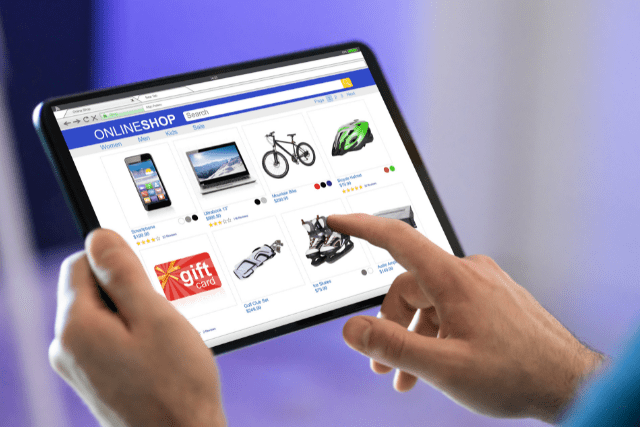Imagine this: you’ve just started your own online business selling handmade jewellery. A customer from halfway across the globe spots a necklace they love on your website and decides to purchase it.
The challenge is getting your product from your workspace to their doorstep. It’s a big world, and shipping your products can seem like a puzzle. It’s all about making the right choices.
This article will discuss the factors that matter when choosing a shipping partner. We’ll give you the lowdown on how to compare various providers and tackle some of the common hurdles that can come up when you’re setting up your shipping process.
The goal? To help you understand the big picture and make smart choices about your shipping partner. That way, your beautiful jewellery (or whatever awesome products you sell) can safely and efficiently journey to customers worldwide. Get ready to become a shipping pro!
Table of Contents
Key Takeaways
- Finding a reliable and trusted shipping partner can’t be overstated for an online business. It can make or break your success in this competitive world of e-commerce.
- When selecting a shipping partner, factors include cost, support, shipping destinations/volume, product type/weight, delivery speed/reliability, and tracking/insurance options.
- Packaging and shipping considerations, such as product size/shape, weight, and delivery speed/reliability, also play a crucial role in ecommerce success.
- When selecting a shipping partner, it is essential to thoroughly research potential partners, evaluate response times/processes for handling complaints, and find a partner with competitive rates and timely deliveries.
Importance of Choosing an Ecommerce Shipping Partner
The selection of a suitable shipping partner is a critical aspect that online businesses must consider to ensure the timely and efficient delivery of their products while maintaining customer satisfaction. Here are some key reasons why choosing the right shipping partner is essential:
1. Customer Satisfaction
A reliable shipping partner ensures timely and accurate product delivery, directly affecting customer satisfaction. Customers expect their orders to be delivered promptly and in good condition. A shipping partner consistently meeting these expectations will help you build a loyal customer base and encourage repeat purchases.
2. Cost Efficiency
Shipping costs can be a significant expense for ecommerce businesses. By partnering with an efficient shipping provider, you can take advantage of competitive rates, volume discounts, and other cost-saving opportunities. This will help you maintain healthy profit margins and offer competitive pricing to your customers.
3. Scalability
As your ecommerce business grows, your shipping needs will evolve. A flexible shipping partner can accommodate your changing requirements, whether it’s expanding to new markets, offering new products, or handling increased order volumes. This adaptability will enable you to scale your business more effectively.
4. International Expansion
Expanding your ecommerce business to international markets can be a lucrative opportunity. A shipping partner with global expertise and a robust international network can help you navigate customs regulations, manage international shipping costs, and ensure timely delivery to customers worldwide.
5. Customization and Personalization
A shipping partner that offers customization options, such as branded packaging, gift wrapping, or personalized notes, can help you create a memorable unboxing experience for your customers. This added touch can enhance your brand image and encourage customer loyalty.
6. Technology Integration
A shipping partner with advanced technology capabilities can streamline your order fulfilment process. Integration with your ecommerce platform, real-time tracking, and automated shipping label generation are just a few examples of how technology can improve efficiency and reduce the likelihood of errors.
7. Sustainability
Environmental concerns are increasingly important to consumers. By partnering with a shipping provider that prioritizes sustainability, you can demonstrate your commitment to reducing your business’s environmental impact. This can help you attract eco-conscious customers and enhance your brand image.
8. Customer Support
A shipping partner with excellent customer support can help you resolve any issues that may arise during the shipping process. This can include lost or damaged packages, delivery delays, or other challenges.
Prompt and effective resolution of these issues is essential to maintaining customer satisfaction and protecting your brand reputation. Choosing the right ecommerce shipping partner is a critical decision that can significantly impact your business’s success.
By considering cost efficiency, scalability, international capabilities, customization options, technology integration, sustainability, and customer support, you can select a shipping partner that aligns with your business goals and helps you deliver a superior customer experience.
Best Shipping Partners for ecommerce Business in India
India has a growing ecommerce market, and several shipping partners cater to the needs of online businesses. The best shipping partner for your ecommerce business will depend on factors such as your target market, shipping destinations, product types, and budget. Here are some of the top shipping partners for ecommerce businesses in India:
1. Blue Dart
Blue Dart is India’s leading courier and integrated express package distribution company. They offer domestic and international shipping services and have a strong presence nationwide. Blue Dart is known for its reliable and timely deliveries, making it a popular choice for ecommerce businesses.
- Website: Blue Dart
2. Delhivery
Delhivery is a popular logistics and supply chain service provider in India, offering a wide range of services, including express parcel transportation, freight, and reverse logistics. They cater to both B2B and B2C businesses and have a vast network covering over 17,500 pin codes across the country.
- Website: Delhivery
3. DTDC
DTDC is a well-established courier and cargo service provider in India, offering domestic and international shipping solutions. They have a wide network of service centers and provide various services, including express parcel delivery, freight forwarding, and e-fulfillment services.
- Website: DTDC
4. FedEx
FedEx is a global shipping and logistics company with a strong presence in India. They offer a wide range of shipping services, including express parcel delivery, freight, and supply chain management. FedEx is known for its reliability, excellent shipping practices, fast delivery times, and advanced tracking capabilities.
- Website: FedEx India
5. Ecom Express
Ecom Express is a leading end-to-end logistics solutions provider for the ecommerce industry in India. They offer comprehensive services, including express delivery, cash on delivery (COD), and reverse logistics. Ecom Express covers over 27,000 pin codes across the country.
- Website: Ecom Express
6. Shiprocket
Shiprocket is a popular shipping aggregator platform in India that connects ecommerce businesses with multiple courier partners. They offer competitive shipping rates, automated shipping label generation, and real-time tracking. Shiprocket shipping platform supports over 17 courier partners, including Blue Dart, Delhivery, FedEx, and DTDC.
- Website: Shiprocket
When choosing the best shipping partner for your ecommerce business in India, consider factors such as delivery speed, coverage area, shipping rates, technology integration, and customer support. It’s also a good idea to compare multiple shipping partners to find the one that best meets your needs and requirements.
Understanding Your Shipping Needs
It is essential to have a clear understanding of your shipping needs. This includes knowing your shipping destinations and volume and the type, size, and weight of your products. You also need to consider delivery speed, reliability, tracking, and insurance options. By carefully considering these factors, you can identify the best shipping partner for your business needs.
Shipping destinations and volume
When running an online business, deciding who will deliver your products is big. You need to consider where your customers are located and how many items you’ll be shipping. These factors can greatly affect how much shipping will cost and how smoothly it will run.
Think about where most of your customers live. Also, consider places where there seems to be a big interest in what you’re selling. Knowing this can help you figure out which shipping companies cover those areas well and can deliver your items reliably and for a reasonable price.
Next, try to work out how many items you’ll be shipping. Look at your past sales and think about how your business might grow. This will help you negotiate better prices with the shipping companies and avoid any nasty surprises like extra fees or delays because they can’t handle your shipping volume. Remember, other things, like seasonal changes, special offers, or new product launches, might affect how much you’re shipping.
By understanding where and how much you’ll be shipping, you can choose a partner that aligns with your business plans and meets your customers’ expectations. This will set you on the path to making smart decisions about shipping that help your online business succeed.
- Shipping delays or errors can result in lost sales and damage to your reputation.
- Multiple delivery options (e.g., express vs standard) can increase customer satisfaction.
- High-volume shippers may benefit from using freight forwarding services instead of traditional carriers.
- Tracking systems should be reliable and easy to use for both businesses and customers alike.
Product type, size, and weight
Considering the dimensions and weight of a product is an important factor in determining the best shipping options for an ecommerce business. The size and shape of a product can affect its fragility, which determines the packaging materials required to ensure safe transportation.
For example, delicate items like glassware or electronics may require additional cushioning and protective materials to prevent breakage during transit. This means that businesses must consider not only the cost of shipping but also the cost of appropriate packaging materials.
Furthermore, weight plays a crucial role in shipping costs. Shipping companies often charge by dimensional weight, which considers both the size and weight of a package. Therefore, businesses must be mindful of the actual versus volumetric weight when choosing their carriers.
In addition, some carriers have maximum allowable weights per package or shipment limits that must be adhered to. Businesses should carefully review these limits as exceeding them could lead to additional fees or delays in delivery times. Ultimately, considering the physical characteristics of products being shipped is essential for businesses looking to optimize their shipping strategy and minimize overall costs while ensuring timely delivery and customer satisfaction.
Example:
Imagine you run an online business that sells handmade ceramics. These products vary in size and shape, from small cups to large bowls. They are also delicate and need to be handled with care during shipping.
The dimensions and weight of your ceramics will affect the cost and method of shipping. For example, a small and lightweight ceramic cup might fit easily into a padded envelope and can be shipped relatively cheaply. But a large, heavy ceramic bowl might need to be placed in a box with plenty of bubble wrap or packing peanuts to protect it from damage. This increases the size of the package and, therefore, the shipping cost.
Shipping companies use “dimensional weight”, which is a calculation based on the size and weight of a package. If your large ceramic bowl is very heavy, it might cost more to ship because of its weight. But even if it’s relatively light, it could cost more due to its size – the space in the shipping truck or aeroplane.
You must also be aware of the shipping company’s weight limits. If you’re sending out a big order of several ceramic pieces, the combined weight might exceed the limit, leading to extra fees or a delay in delivery.
Delivery speed and reliability
Delivery speed and reliability are crucial factors in the success of an ecommerce business, as they directly impact customer satisfaction and loyalty. Here are four reasons why:
- Customers expect prompt delivery: In today’s fast-paced world, customers have come to expect quick shipping times. They want their orders to arrive as soon as possible, and delays can lead to frustration and negative reviews.
- Late deliveries can harm your reputation: A single late or missed delivery can harm your brand’s reputation, leading to lost sales and diminished customer trust.
- Shipping options affect conversion rates: Offering various shipping options is important for improving conversion rates. Customers may be more likely to purchase if they can choose from faster or more affordable shipping methods.
- Reliable carriers reduce risk of damage or loss: Partnering with a reliable carrier can help ensure that packages arrive safely and on time. This not only improves customer satisfaction but also reduces the risk of costly returns or replacements due to damaged or lost items.
In short, choosing a shipping partner that provides speedy and reliable service is critical for maintaining customer satisfaction, building brand loyalty, and ensuring the success of an online business.
Tracking and insurance options
The ability to track packages and purchase insurance options is essential to ensuring the safe and secure delivery of goods purchased online. Tracking allows customers to monitor the progress of their shipments, providing them with peace of mind and a sense of control over their purchase. This feature also allows online businesses to provide accurate delivery estimates, which can lead to increased customer satisfaction and loyalty.
Insurance options offer protection against any damages or losses that may occur during shipping. If a package is lost, stolen, or damaged in transit, insurance can cover the cost of replacement or repair. Offering insurance options shows customers that an online business values their purchases and wants to ensure they arrive safely.
By partnering with a shipping company that provides tracking and insurance options, online businesses can improve their reputation for reliability and trustworthiness among consumers.

Things to Consider When Choosing a Shipping Partner
When selecting a shipping partner, businesses need to consider various factors that can impact their operations and customer satisfaction. Some key points to consider include reputation and reliability, pricing transparency, customer service and support, technology integration, and international shipping capabilities.
Each of these factors plays an essential role in ensuring a smooth fulfillment process that meets the needs of online shoppers while delivering cost-effective solutions for businesses. Therefore, it is important to carefully evaluate potential shipping partners based on these criteria before making final decisions.
Reputation and reliability
Reliability and reputation are crucial factors to consider when selecting a shipping partner, as they can greatly impact the overall success of an online business. A reliable shipping partner ensures that products are delivered on time, reducing the risk of customer complaints and negative reviews. On the other hand, a poor reputation for delivering goods late or damaged could lead to losing customers and revenue.
To ensure reliability and maintain a good reputation, online businesses should consider the following:
- Research potential shipping partners thoroughly before making a decision.
- Look for feedback from other businesses in your industry.
- Consider their delivery times, insurance policies, and customer service.
This will help them maintain positive customer relationships while minimizing risks associated with delayed deliveries or damaged goods.
Pricing transparency
Having established the importance of a shipping partner’s reputation and reliability, it is time to delve into another crucial aspect of choosing a shipping provider: pricing transparency. Online businesses are always looking for ways to reduce their costs without sacrificing quality, and one way to achieve this is by selecting a partner that offers clear and predictable pricing.
Pricing transparency refers to the ability of a shipping partner to provide upfront information about their rates, fees, surcharges, and any other charges associated with their services. This information should be easily accessible and understandable for online businesses to accurately calculate the total shipping cost before making any commitments.
A transparent pricing model also allows businesses to objectively compare different providers and make informed decisions based on their needs and budget constraints. Partnering with a shipping provider that prioritizes pricing transparency can help online businesses avoid unexpected costs and increase overall profitability.
Customer service and support
Customer service and support is a critical factor to consider when evaluating potential shipping providers, as they can greatly impact the overall shipping experience for both the business and its customers.
A reliable and efficient customer service team can help resolve issues or concerns quickly, ensuring that packages are delivered on time and without complications. On the other hand, poor customer service can lead to delays in delivery times, lost packages, and dissatisfied customers.
To ensure high-quality customer service from a shipping provider, businesses should look for companies that offer 24/7 support through multiple channels such as phone, email, chat or social media. It’s also important to evaluate their response times and make sure they have a clear process for handling complaints or inquiries. Businesses should also consider the level of expertise of their support team in handling various situations that may arise during shipping.
Lastly, businesses should read reviews from previous customers about their experiences with the company’s customer service to understand what to expect if they choose to work with them. By considering these factors when choosing a shipping partner, businesses can ensure that they provide their customers with a seamless shipping experience while maintaining their reputation as a reliable online retailer.
Technology integration
A solid customer service and support system is crucial in ensuring customers are satisfied with their orders. However, there is more to the shipping process than just delivering the packages on time. The integration of technology plays an important role in making sure that the entire shipping process runs smoothly.
Integrating technology into your shipping process allows you to automate order tracking, label printing, and inventory management tasks. This not only saves time but also reduces human error and increases efficiency. Technology can also provide real-time updates to the seller and buyer regarding package status, improving communication and increasing transparency between parties.
Furthermore, with technological advancements such as GPS tracking and artificial intelligence, businesses can predict delivery times more accurately and optimize their routes for faster deliveries. These benefits ultimately lead to greater customer satisfaction and improved business operations.
International shipping capabilities
International shipping is a complex process that requires businesses to understand different countries’ regulations and customs procedures to ensure successful delivery. Online businesses that offer international shipping services must know the various legal requirements and restrictions, including export controls, customs duties, taxes, and documentation. Failure to comply with these regulations can lead to delays in delivery, confiscation of goods, fines or penalties.
In addition, online businesses need to choose a shipping partner with the expertise and experience handling international shipments. The shipping partner should have a strong network of carriers and agents who can help navigate through local laws and regulations.

They should also have sophisticated tracking systems that provide real-time shipment status and location updates. By partnering with the right logistics company, online businesses can ensure smooth international deliveries while minimizing risks and costs associated with cross-border shipping.
Shipping rates, fees, and pricing structure
This is an essential aspect that online businesses need to consider when choosing a shipping partner. Shipping costs can significantly impact the profitability of an e-commerce business, and it is crucial to find a partner who offers competitive rates while ensuring timely deliveries.
When evaluating potential shipping partners, it is essential to understand their pricing structure thoroughly. Some carriers may charge based on weight or dimensions, while others may have a flat-rate system for specific regions or countries. It is also vital to consider additional fees such as fuel surcharges, handling charges, customs duties, taxes, and insurance costs. To help you make an informed decision about choosing a shipping partner that aligns with your business goals and budgetary constraints better, here are two nested bullet point lists:
Factors to consider when assessing different carriers’ pricing structures:
- Understanding how they calculate their rates
- Identifying any hidden fees or charges
- Comparing prices across multiple carriers
- Evaluating discounts offered for bulk shipments
Tips for optimizing shipping costs:
- Negotiating with carriers for better rates based on the volume of shipments
- Choosing the appropriate packaging size and weight to minimize freight costs
- Offering free shipping options for orders exceeding a certain value threshold
- Utilizing tracking tools and analytics software to identify cost-saving opportunities
By considering these factors when selecting a shipping partner and implementing cost optimization strategies effectively, e-commerce businesses can maintain customer satisfaction levels while achieving greater profitability in today’s competitive market.
Shipping options and services
Depending on their needs and preferences, E-commerce businesses have various shipping options and services. Some popular services include same-day, next-day, two-day, and standard ground delivery. Additionally, some carriers offer specialized services such as temperature-controlled shipments for perishable items or oversized item transportation for bulky goods.
When choosing a carrier, online businesses should also consider the type of packaging materials the carrier uses. For example, some carriers may provide free boxes or envelopes, while others may require additional fees for these materials. Also, online businesses should evaluate how well a carrier tracks packages in transit and how easy it is to communicate with them if any issues arise during shipment.
Tracking and communication
After determining the shipping options and services available, online businesses must also consider tracking and communication to ensure a seamless delivery process. This involves providing customers with accurate updates on their orders’ status and addressing any concerns or issues that may arise during transit.
Effective tracking and communication can improve customer satisfaction and provide valuable insights into the performance of the business and its shipping partner. Here are three key factors to consider when evaluating a shipping partner’s tracking and communication capabilities:
- Real-time updates: Customers expect to receive timely updates on the status of their shipments, including expected delivery dates and any potential delays. A reliable shipping partner should offer real-time tracking information easily accessible through multiple channels (e.g. email, text message, or an online portal).
- Proactive problem-solving: Inevitably, issues will arise during transit – whether a delayed shipment or a damaged package. A vital shipping partner will have protocols to identify and address these problems before they escalate into larger issues.
- Transparency: Finally, transparency is critical when communicating with customers about their shipments. This includes being upfront about any fees or surcharges associated with specific delivery options (such as expedited shipping) and clearly outlining returns or refund policies if something goes wrong.
Sustainability and social responsibility practices
Sustainability and social responsibility practices are becoming increasingly important in the shipping industry as consumers become more conscious of their environmental impact and seek businesses prioritising ethical and sustainable operations.
Shipping companies are reducing their carbon footprint by investing in cleaner fuels, optimizing routes to minimize emissions, and using more efficient transportation methods. Many companies have also implemented initiatives to reduce waste, such as recycling programs, reusable packaging options, and reducing the amount of packaging materials used.
Social responsibility is another key factor for businesses looking for a shipping partner. This includes factors such as fair labour practices, supporting local communities where they operate, and reducing or eliminating harmful chemicals from their operations. Companies prioritising social responsibility can build stronger customer relationships by demonstrating a commitment to ethical business practices.
As sustainability becomes an increasingly critical issue for consumers worldwide, it is essential for online businesses to choose shipping partners that align with their values and embrace sustainable and socially responsible practices.
Security and privacy
Security and privacy are crucial considerations in the shipping industry, particularly with the rise of cyber threats and data breaches. Online businesses must ensure that their chosen shipping partner has proper measures to safeguard sensitive information such as customer names, addresses, and payment details. Security risks can arise at various points during shipping, from data breaches during online transactions to theft or hacking of delivery vehicles.
To mitigate these risks, it is essential for online businesses to work with a reputable shipping partner that complies with industry standards for security and privacy. This includes implementing encryption protocols for all online transactions and maintaining strict access controls over sensitive information.
Additionally, companies should regularly review their security procedures and work closely with their shipping partners to identify potential vulnerabilities and implement appropriate solutions. By prioritizing security and privacy in their choice of shipping partner, online businesses can protect themselves and their customers from potentially devastating cyber attacks.
Frequently Asked Questions
How do I calculate the cost of shipping for my business?
To calculate shipping costs for your business, consider package weight, dimensions, destination, and speed. Use carrier calculators or negotiate rates with carriers to ensure competitive pricing. Account for any additional fees such as insurance or handling charges.
What are some common mistakes that businesses make when choosing a shipping partner?
Common mistakes businesses make when choosing a shipping partner include not researching carriers thoroughly, ignoring customer service and tracking options, failing to consider the impact of shipping on profit margins, and underestimating the importance of timely delivery.
What types of shipping insurance should I consider for my business?
Businesses should consider shipping insurance for loss or damage during transit, liability coverage for accidents caused by the carrier, and cargo insurance for high-value goods. It is important to review policies and compare rates from multiple providers.
How can I track my shipments and inform customers about their delivery status?
Shipment tracking is crucial for online businesses to inform customers about delivery status. Utilizing tracking numbers, businesses can monitor packages and send notifications to customers via email or SMS. This improves the customer experience and reduces inquiries and potential disputes.
Do I need to know any international shipping regulations when choosing a shipping partner?
International shipping regulations must be considered when selecting a shipping partner. Compliance with customs requirements, import/export laws, and transport-related standards should be assessed. Failure to comply can result in delays, fines, or seizure of goods.
Conclusion
To wrap it up, choosing a shipping partner is like picking a teammate for your online business. You need to find a reliable, affordable company that works well with your needs. It might take some time to figure out, but finding the right fit is worth it. Your products will reach your customers safely and on time with the right partner. And in the end, that’s what makes a successful online business!







